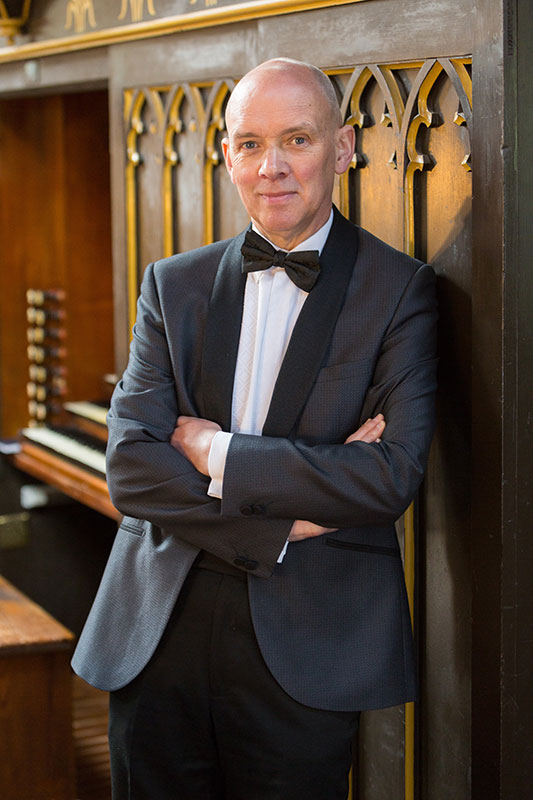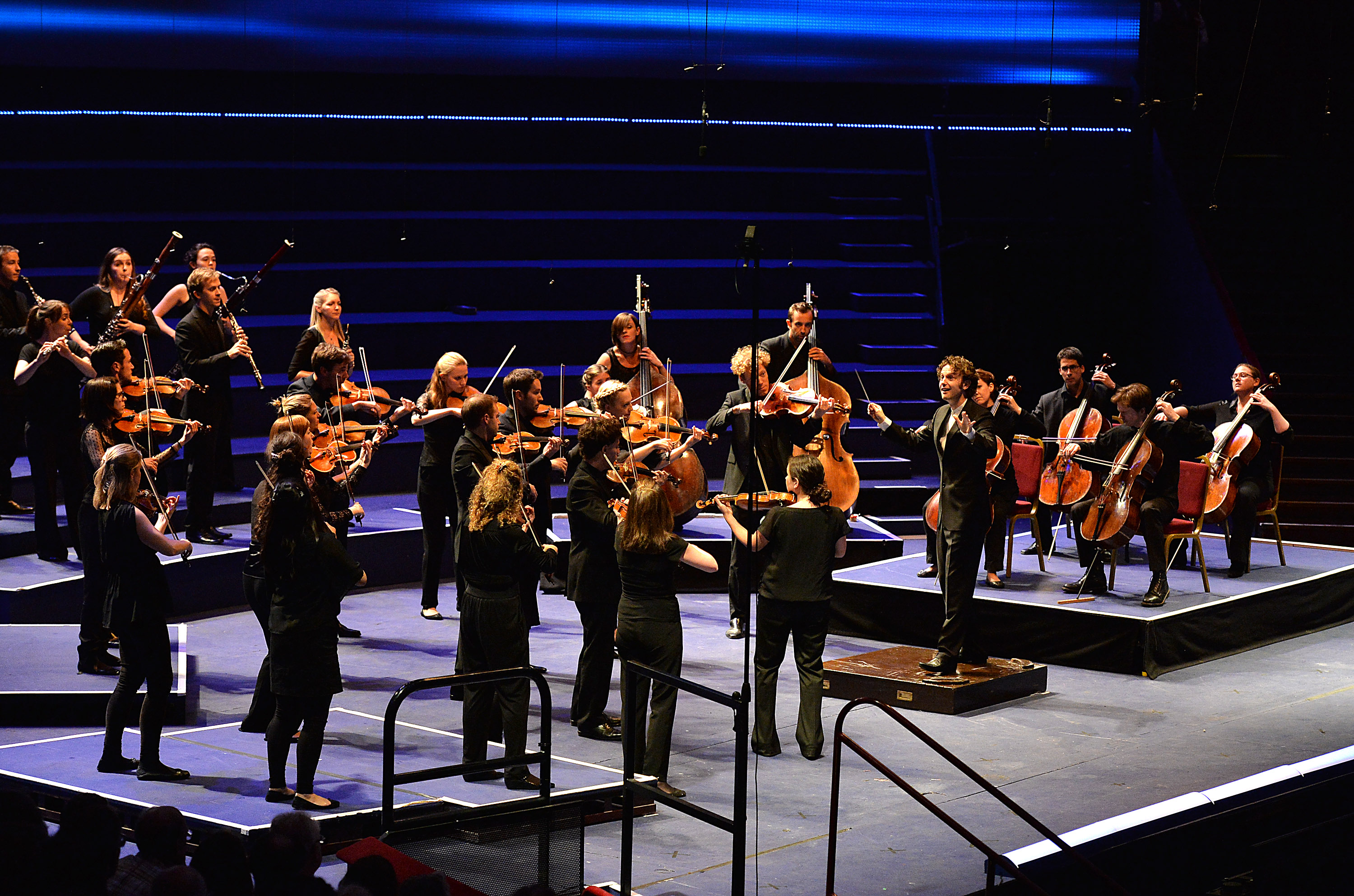ROBERT KYR – IN PRAISE OF MUSIC
ANTIOCH CHAMBER ENSEMBLE
JOSHUA COPELAND, conductor
BRIDGE 9558 58’28
This is a fine recording of ten choral works by Robert Kyr. All the music here has been composed in the last twenty years and comprises settings of English words by the composer alongside traditional Latin texts. The range of subject matter includes music itself and aspects of life in titles such as Freedom Song and Voices for Peace. The composer describes the CD as a celebration of “the many ways in which music can affect us as a transformative force; as a motivator for constructive action; as a spiritual catalyst; as a voice for freedom and peace; as wordless inspiration; and as a guide towards the light at the end of the tunnel.”
ALAN SHULMAN – THE TATTOOED STRANGER
HISTORIC SOUNDTRACK RECORDINGS (1946-1950)
VARIOUS ARTISTES
BRIDGE 9560 69’14
A very welcome release sees music by American composer Alan Shulman in these recordings from more than 70 years ago being brought into the light of day in accessible form. Sound quality cannot be judged by today’s standards but there is something about listening to these monaural sounds that makes them even more evocative of the period in which they were written. I know nothing about the pictures that this music was written to enhance but there is much to be enjoyed here in its own right. The longest track is of music from a feature The Tattooed Stranger (1950). The remaining 4 tracks (the last being very short in comparison) are all from RKO Pathe documentaries from 1946 and 1948. Listening to this compilation gives an insight into the creativity and effort that went into providing music for these films that were released in abundance for many years. Very enjoyable.
WALTER BRAUNFELS – DON GIL; DIVERTIMENTO OP42; SERENADE OP20
ORF VIENNA RADIO SYMPHONY ORCHESTRA
GREGOR BUHL, conductor
CAPRICCIO C5429 59’20
An early twentieth century composer not influenced by serialism Walter Braunfels music still has some fresh things to say despite continuing in the German romantic tradition. His music sadly was outlawed for many years under the Nazi regime, to which he took a brave stand against, and took time to recover afterwards. This is a very welcome release as part of a range featuring several CDs of Braunfels’ music. It is to be hoped that it may help to stimulate further interest in the music of so many who were silenced or sidestepped during those oppressive times. Alongside the three tracks listed in the title is the orchestral Ariel’s Song.
THOMAS TORSTRUP QUARTET – TWO BROTHERS
NXN RECORDINGS NXN2007
This short CD contains some lovely music mostly conceived by Thomas Torstrup and developed and realised by the quartet. Piano, trumpet, bass and drums are supplemented by mouth harp (on the opening track). Located in the jazz/experimental sphere this music encompasses laid back and more angular/percussive sounds in a series of contrasting tracks inspired by the natural world, Olivier Messiaen and the drum playing of the composer’s son. Lovely!
KALEVI AHO – SOLO
VARIOUS PERFORMERS
BIS BIS-2446. 78’03
This is a wonderful experience in pared back listening. Since 1975 Finnish composer Aho has written a number of works for unaccompanied solo instrument which challenge the performer to use highly technical approaches to achieve a wide range of timbre and expression. This development of the tradition found in the Bach cello suites makes for a focussed and very satisfying exploration of the particular qualities of each instrument featured here. In turn we have cello, viola, oboe, clarinet, bassoon, horn and flute in committed performances by each musician.
FRANCIS POTT – CHRISTUS
TOM WINPENNY, organ of Cathedral & Abbey Church of St Alban
NAXOS 8.574252-53 2’21 (2 CDs)
This mammoth work, a Passion Symphony for organ, is splendidly brought to life here by Tom Winpenny who is a fine exponent of new organ music. Bookended by shorter works based on chorales, Improvisation on Adeste Fideles (2005), Schmucke dich, O liebe Seele (2013) and Surrexit Hodie (Fantasia-Toccata sopra ‘O Filii et Filiae’) (2019), this is a feast of contemporary organ works from this masterful composer.
WILLIAM BLAND – PIANO SONATAS
KEVIN GORMAN, piano
BRIDGE 9556 58’39
American composer William Bland has composed a cycle of 24 piano sonatas, moving through the major and minor keys in the same way that many cycles of Preludes and Fugues have been created. Only a few of these works have been performed to date and so it is particularly pleasing to have this release of two of them- No 17 in A minor and No 18 in G minor -recorded here. This is exciting music which blends a number of styles and influences, echoing different periods, genres and compositional techniques including tonal and atonal approaches to harmony. I look forward to hearing more.
LOUISE FARRENC – SYMPHONIES 1&3
INSULA ORCHESTRA, LAURENCE EQUILBEY, conductor
ERATO 0190296698521 64’51
The music of French composer Louise Farrenc (1804-75) is only relatively recently becoming more widely known. Influenced by both German and French traditions she wrote successfully for piano and later for orchestra, including a number of larger scale works. The welcome release of these 2 Symphonies gives a good insight into this music, brought to life here by the Insula Orchestra, which has become a champion of this particular composer’s work. More releases are planned to highlight her music.
LORD BERNERS – THE TRIUMPH OF NEPTUNE (Complete Ballet)
ENGLISH NORTHERN SINFONIA, ROYAL BALLET SINFONIA
DAVID LLOYD-JONES, conductor
NAXOS 8.555222 69’27
Lord Berners (1883-1950) had his own distinctive style and compositional approach. This release combines the ballet music The Triumph of Neptune with puppet ballet L’uomo dai baffi (The Man with the Moustache) with orchestrations by Philip Lane of Valses bourgeoises and a short Polka.
CHARLES IVES – PIANO SONATA NO 1 / BERNHARD GANDER – PETER PARKER
JOONAS AHONEN, piano
BIS BIS-2409 61’27
Another very distinctive voice, ahead of its time, was Charles Ives. Taking inspiration from complete musical soundscapes as well as from particular classical and popular styles he combined them all in eclectic works which often require repeated listening. Here his first Piano Sonata forms the largest part of this CD. It is paired with the much shorter Three-Page Sonata. The work bridging these two is by contemporary composer Bernhard Gander. Taking its inspiration from the world of superhero comics, Spiderman to be precise, Peter Parker is named after the superhero’s human alter ego. As with Ives it is a meeting between so-called high and a further demonstration that such divisions are not necessary.
HENRY PURCELL – BIRTHDAY ODES FOR QUEEN MARY
THE KING’S CONSORT, ROBERT KING, conductor
VIVAT 122 77’10
Three of the six Birthday Odes for Queen Mary are featured here in fine recordings from a roll call of excellent singers and instrumentalists under Robert King’s direction. Expertly recreating the sumptuous sounds of the Queen’s court the Odes are Arise my muse, Love’s goddess sure was blind and Celebrate this festival.
XIAOGANG YE – WINTER
ROYAL SCOTTISH NATIONAL ORCHESTRA
GILBERT VARGA & JOSE SEREBRIER, conductors
BIS BIS-2113
The title track forms the centrepiece of this collection of music for orchestra and soloists by this contemporary exponent of Chinese composition. Two works, The Song of Sorrow and Gratification and Starry Sky also feature voices. The latter work includes some sumptuously spacious piano writing. Another very distinctive soundworld here, blending traditions of East and West.
BEHZAD ABDI – HAFEZ
VARIOUS ARTISTES
CREDO CHAMBER CHOIR, BOGDAN PLISH, conductor
NATIONAL SYMPHONY ORCHESTRA OF UKRAINE, VLADIMIR SIRENKO, conductor
NAXOS 8.660426-27 (2 CDs) 1”45’27
Before reviewing this CD I knew nothing about its Iranian composer. Behzad Abdi (b. 1973) brings together elements of dastgah, the traditional modal system of Iran, and Western classical forms. This world premiere recording presents the recent (2013) two act opera with libretto by Behrouz Gharibpour based on the life of Hafez, the revered Persian poet and mystic. I really enjoyed the way the composer draws these different worlds together.
BARBARA STROZZI – SACRI MUSICALI AFFETTI OPERA QUINTA, 1655
AURATA FONTE
TACTUS TC611990 (2 CDs) 48’33 & 52’49
Barbara Strozzi’s music is becoming much more widely heard. Most of it is secular but here we have a wonderful complete presentation of her publication of sacred works from 1655. Including accompaniment on reproductions of period instruments which are helpfully documented in the booklet this makes for fascinating and uplifting listening.
CHRISTOPHER HERRICK – NORTHERN LIGHTS
ORGAN OF NIDEROS CATHEDRAL, TRODHEIM, NORWAY
HYPERION CDA68376 71’58
A CD by Christopher Herrick always makes for an exciting listening experience. At home here on the comprehensive and extremely versatile Nidaros organ he performs a varied and interesting selection which includes a good amount of contemporary works. The opening track, the spirited Yes! by Mons Leidvin Takle, gives a good hint at what is to come. Two contemporary Toccatas by Anders S Borjesson and Hans-Andre Stamm take their place alongside Gigout’s well-loved Toccata in B minor. A set of jazz variations on Amazing Grace by Iain Farrington and a piece by Yon (other than his famous Toccatina), the Second concert study:Flying Feet are to be found together with a Prelude and Fugue in G minor by Brahms and Dubois’ Fiat Lux. The inclusion of 3 chorales by the contemporary Christian Praestholm adds further interest.
SP


 Opera Brava had a beautiful summers evening at Hever Castle on 14th August when they performed Puccini’s Tosca. The seven musicians, occupied the left side of the stage, while the set for the singers filled the right, which affected the balance of sound considerably depending on which side of the audience one sat. Hats off to musical director, Robert Bottriell who conducted the whole from the piano in the centre.
Opera Brava had a beautiful summers evening at Hever Castle on 14th August when they performed Puccini’s Tosca. The seven musicians, occupied the left side of the stage, while the set for the singers filled the right, which affected the balance of sound considerably depending on which side of the audience one sat. Hats off to musical director, Robert Bottriell who conducted the whole from the piano in the centre. Everything in this concert was beautifully played. First we had a warm, intelligent account of Rachmaninov’s Rhapsody on a Theme of Paganini with Pavel Kolesnikov at the piano. Each and every one of the 24 variations was spelled out with sensitive attention to all those different styles especially in the pizzicato variation and the frenetic finale.
Everything in this concert was beautifully played. First we had a warm, intelligent account of Rachmaninov’s Rhapsody on a Theme of Paganini with Pavel Kolesnikov at the piano. Each and every one of the 24 variations was spelled out with sensitive attention to all those different styles especially in the pizzicato variation and the frenetic finale.